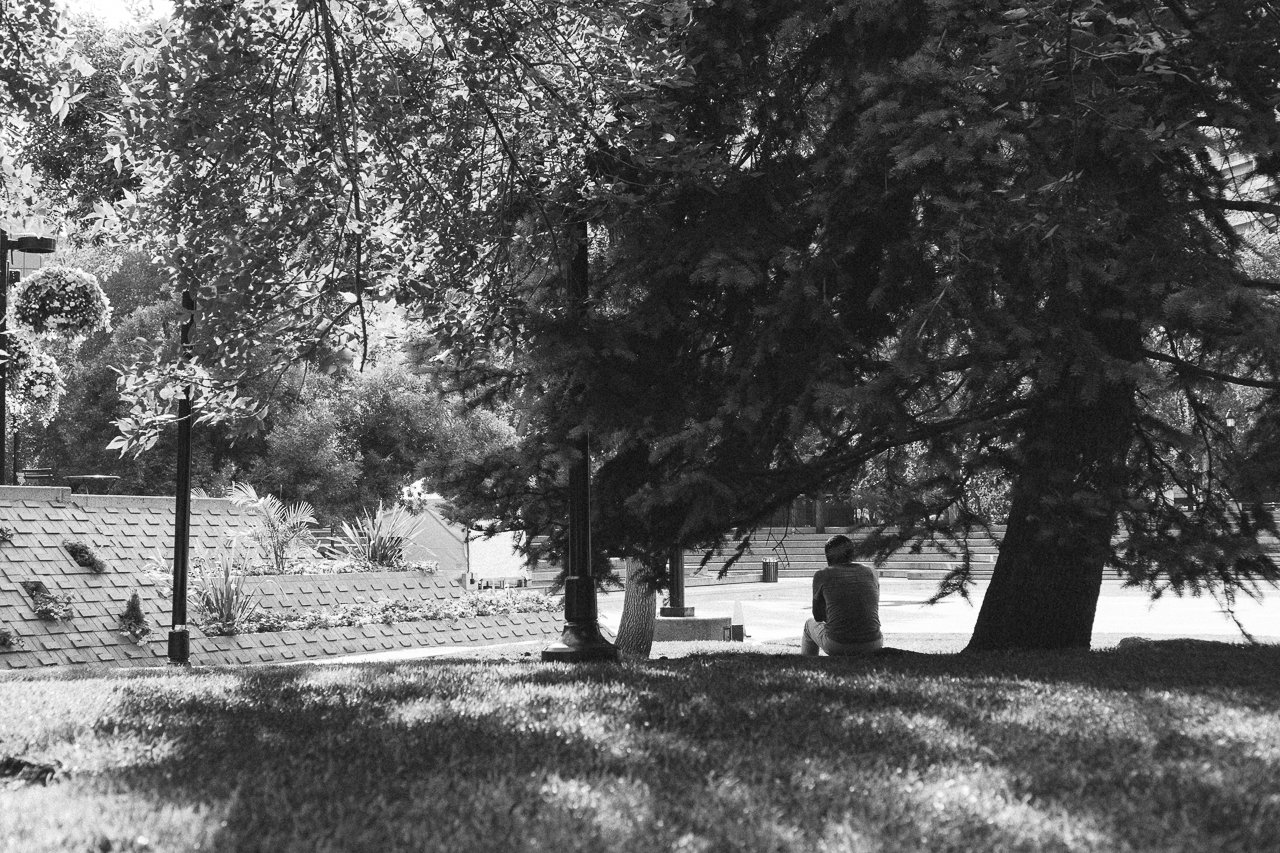Cultural Shackles
A DIFFERENT KIND OF EMPOWERMENT (4)
Identity Crisis - Calgary. June 2016 by Funeh
The media has a knack for convincing us that there’s a Black way to roll and a different way to act if you’re White. Back in 2020, in describing White culture, the African History Museum posted a graphic briefly before taking it down, citing data from a 1990 paper titled “Some Aspects and Assumptions of White Culture in the United States” by Judith H. Katz. It listed the nuclear family, rational linear thinking, hard work, work before play, respect for authority, heavy value on ownership of goods, planning for the future, and other wealth-creating ideas as white cultural values. I will unpack that treasure trove in a future post.
The idea that African Americans deliberately craft a culture to distinguish themselves from Whites predates recent social media influences. In Jean S. Phinney’s 1988 publication, ‘The Development of Ethnic Identity in Adolescents,’ he references Ogbu’s* discussion on "oppositional identity."
"What Blacks consider appropriate or even legitimate for themselves in terms of attitudes, beliefs, preferences, behaviors, or practices are sometimes defined in opposition to the attitudes, beliefs, preferences, behaviors or practices of White Americans.”
It’s a delicate dance for Blacks to figure out which behaviour is which and then decide whether to 'act Black' or 'act White.’ Along with this funky identity crisis, they also craft this mental playbook to protect their turf. It’s an ‘oppositional cultural frame of reference’ to define their turf and maintain boundaries between themselves and white Americans. When behaviours cross the reference line into those defined as white, you might hear some whispers about being “white-washed,” and trust me, that’s not a compliment.
In their paper, Black Students' School Success: Coping with the "Burden of 'Acting White, Signithia Fordham and John U. Ogbu further writes:
The cultural frame of reference of subordinate minorities is emotionally charged because it is closely tied to their sense of collective identity and security. Therefore individuals who try to behave like white Americans or try to cross cultural boundaries or to "act white" in forbidden domains face opposition from their peers and probably from other members of the minority community. Their peers often construe such behaviors as trying to join the enemy (DeVos, 1967). Individuals trying to cross cultural boundaries or pass culturally may also experience internal stress, what DeVos (1967) calls "affective dissonance." The reason for the affective dissonance is that such individuals share their minority-group's sense of collective oppositional identity, a belief which may cause them to feel that they are, indeed, betraying their group and its cause. The individuals may also experience psychological stress because they are uncertain that white Americans will accept them if they succeed in learning to "act white" (Fordham, 1985; Ogbu, 1986b). Indeed, De Vos (1984) argues that in a situation involving an oppositional process, subordinate-group members may automatically or unconsciously perceive learning some aspects of the culture of their "oppressors" as harmful to their identity. That is, learning itself may arouse a sense of "impending conflict over one's future identity.”
Moving forward, acknowledging the complexities of cultural change within the Black community is essential. While it won't be easy, fostering open dialogue, challenging stereotypes, and embracing diversity of thought and behaviour could be steps toward shifting cultural norms. For Blacks, entrenched in a history of oppression and marginalization, shaking off the shackles of old cultural norms is no easy feat. Generations have been raised in the shadow of systemic inequalities, where the lines between survival and conformity blur.
So, how do we break this cycle? It starts with reimagining our cultural narratives. Instead of viewing cultural shifts as a betrayal, we must see them as a path to empowerment. Education, economic opportunities, and community support are pivotal in this journey. By fostering environments where individuals can explore and embrace new cultural paradigms without fear of rejection, we pave the way for a more inclusive and prosperous future. It's not about erasing history but evolving beyond it, shaping a culture that uplifts and empowers.
Looking ahead, the next article will delve into the nuances of cultural differences between Blacks (African Americans), Whites, and Nigerians. Exploring these differences can shed light on how various cultural backgrounds shape perspectives, behaviours, and social interactions, offering insights into potential pathways for cultural evolution and societal advancement.
References:
Fordham, S., Ogbu, J.U. (1986). Black students' school success: Coping with the “burden of ‘acting white’”. Urban Rev 18, 176–206 (1986). https://doi.org/10.1007/BF01112192
*Ogbu, J. (1987). Opportunity structure, cultural boundaries, and literacy. in Judith Langer (Ed.), Language, literacy and culture: Issues of society and schooling. Norwood, N.J.: Ablex.
